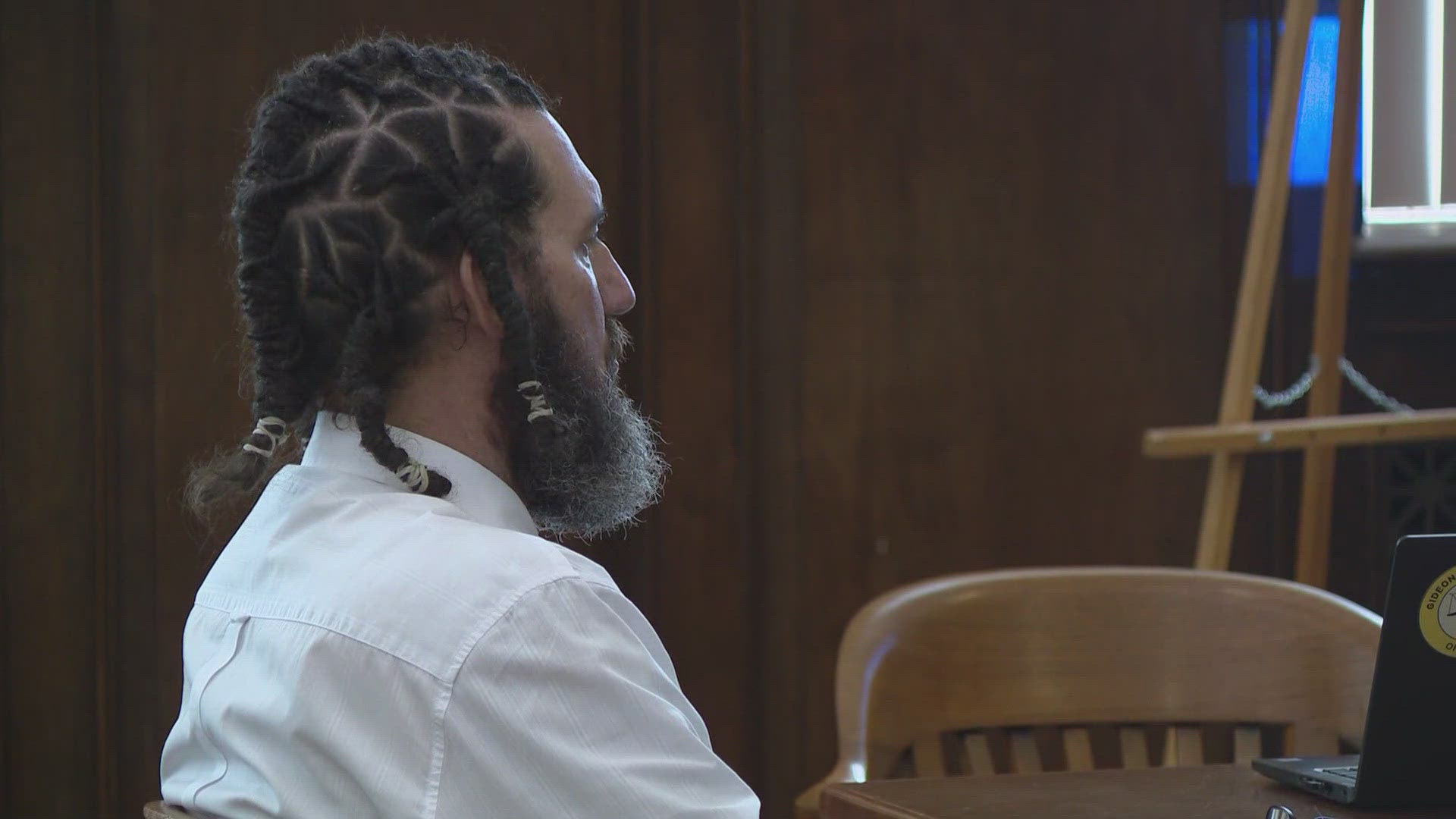ST. LOUIS — When it comes to mental illness, Thomas Kinworthy is faking it, according to Dr. Rachael Springman, a forensic psychologist who works with the Department of Mental Health’s Forensic Pretrial Program.
She served as the exclamation point on the prosecution’s case Wednesday just before closing arguments began in Kinworthy’s murder trial.
He is accused of killing St. Louis Officer Tamarris Bohannon, shooting and wounding another officer, wounding a homeless man and forcing a couple out of their home at gunpoint before he barricaded himself inside for a 12-hour standoff with police on Aug. 29, 2020.
Defense attorneys are seeking a not guilty by reason of mental defect verdict. They put two psychologists on the stand as well as Kinworthy’s ex-wife and mother of his children.
Kinworthy waived his right to testify on his own behalf Tuesday.
Dr. Patricia Zapf was the defense’s star witness, having diagnosed the Parkland school shooter as well as the man who shot and killed St. Louis County Officer Blake Snyder in 2016 as having a mental illness that meets the not guilty by reason of insanity standard.
Zapf diagnosed Kinworthy with schizoaffective bipolar type, saying she relied on interviews with Kinworthy, his ex-wife, father and stepmother along with some medical records and criminal records.
Springman disagreed with Zapf’s diagnosis.
She interviewed Kinworthy for a little more than two hours in 2023.
“The defendant presented with a very theatrical, dramatic, what felt like a performance at the beginning of the interview,” she said. “He was pacing around the room, crouching, dramatically looking over his shoulder and immediately making statements his food was being poisoned, he was hearing voices.”
She continued: “I've worked for 12 years at an inpatient psychiatric hospital, conducted almost 1,300 forensic evaluations of individuals, many of whom have severe mental illness and that presentation was atypical.”
Judge Elizabeth Hogan ordered the evaluation from the Department of Mental Health, where Springman works.
“To use a sports analogy, there are times when in basketball or in soccer a player is trying to draw a foul and they do what's called a flop where they dramatically fall to the ground, they're writhing in pain, they elicit the foul and then they pop up and they're fine,” Springman told jurors. “That's what this performance felt like in the sense that at the beginning of the interview he was very dramatic, there was a lot of peering around, making statements, trying to control the interview by instead of responding to my question, making sure that he was drawing attention to his self-reported psychotic symptoms, but as the interview progressed that went away and he was able to answer questions concisely and relevantly at times when it suited him.”
She administered a test to Kinworthy during her evaluation that helps detect whether someone is feigning their symptoms. Kinworthy scored an 11, and the cutoff is considered a 6.
She also listened to about 30 hours of recorded calls between Kinworthy, his ex-wife and others that happened after the shooting.
Prosecutors played one call Kinworthy made to a woman about a month after the shooting in which he can be heard laughing as he talked about how the officers who arrested him broke his nose. He also talked about how he is being accused of killing a Black cop. Kinworthy is white.
At that point, Bohannon’s widow walked out of the courtroom, holding a Kleenex.
He joked that he would be getting a T-shirt made with the words MDLM on them to stand for My Daddy’s Life Matters as a way to mock the Black Lives Matter movement.
“He seemed excited about the news coverage and was rather callous about the victim,” Springman said.
He also talked about Bohannon’s funeral with someone else. He could be heard saying, “They had some big funeral for that cop,” and how it was all over the newspaper and TV.
He called it a “big (expletive) joke,” multiple times, saying it means, “There’s no way I’ll never get a fair trial here man, they’re framing me man.”
Defense attorneys noted Springman did not interview Kinworthy for the eight hours that their expert did, nor did she talk to his relatives. Assistant Public Defender Brian Horneyer also asked Springman if she might be biased against Kinworthy because her own father is a retired Missouri Highway Patrolman.
She said that was a "fair question" and is part of why she “went out of her way” to listen to so many jail calls that could contradict her conclusion that he was feigning his symptoms.
“I listened to him while he didn’t know I was there,” she said.
She said she purposely did not interview the relatives because she didn’t find their statements in Zapf’s report to be credible.
Zapf said Kinworthy suffered from untreated mental illness, which was why she didn’t find it odd that there was never any mention of mental illness, hearing voices or delusions in previous records.
Springman said it is highly unusual for someone to live for 43 years with a severe mental illness and no treatment documented anywhere in his prison or medical records, except for those that followed the shooting.
She diagnosed him with antisocial personality disorder.
“Someone with antisocial personality disorder will usually have a pervasive pattern of violating the rights of others, including behaviors that are grounds for arrest, they can’t keep a job, irritability, aggression, lack of remorse, lying, conning people,” she said.
During the eight days of testimony jurors heard, they learned about his previous criminal cases involving a kidnapping and sexual battery case, the stabbing of another inmate while he was incarcerated in Florida as well as domestic violence against his ex-wife. Springman also testified to how Kinworthy has convinced other inmates to let him use their PIN numbers to make phone calls so they won't be recorded as his, and also convinced other people to send him money for commissary food and snacks.
Closing arguments are expected to begin Thursday.

